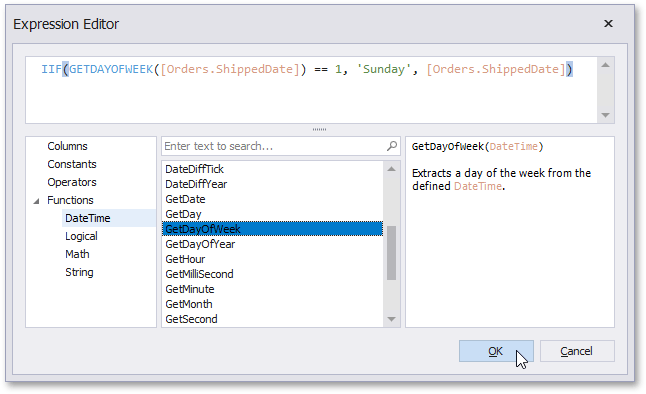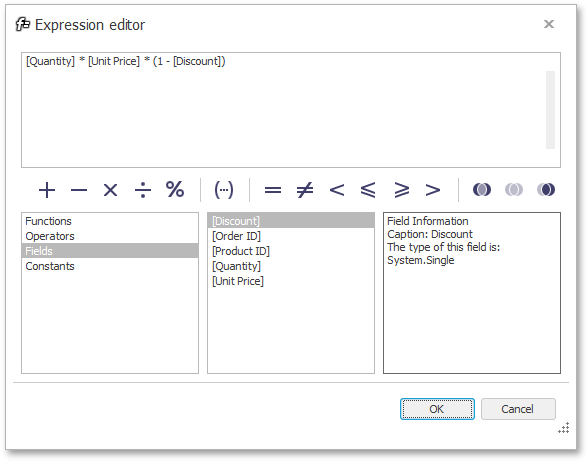VGridOptionsBehavior.UnboundColumnExpressionEditorMode Property
Gets or sets the type of unbound expression editor that end-users can utilize to modify expressions for unbound rows owned by this Vertical Grid.
Namespace: DevExpress.XtraVerticalGrid
Assembly: DevExpress.XtraVerticalGrid.v25.2.dll
NuGet Packages: DevExpress.Win.Navigation, DevExpress.Win.VerticalGrid
Declaration
[DefaultValue(ExpressionEditorMode.Default)]
[XtraSerializableProperty]
public virtual ExpressionEditorMode UnboundColumnExpressionEditorMode { get; set; }Property Value
| Type | Default | Description |
|---|---|---|
| ExpressionEditorMode | Default | An ExpressionEditorMode object that specifies the type of unbound expression editor that end-users can utilize to modify expressions for unbound rows owned by this Vertical Grid. |
Available values:
| Name | Description |
|---|---|
| Default | Editor version depends on the WindowsFormsSettings.DefaultSettingsCompatibilityMode value. If its value is v16 or less, it is the legacy version; otherwise, the new version is used. |
| Standard | Specifies a legacy version of the Expression editor. |
| AutoComplete | Specifies a new version of the Expression editor. |
Property Paths
You can access this nested property as listed below:
| Object Type | Path to UnboundColumnExpressionEditorMode |
|---|---|
| VGridControlBase |
|
Remarks
If the RowProperties.ShowUnboundExpressionMenu setting is enabled, end-users can right-click this unbound row and click the “Expression Editor…” option.

This will invoke the Unbound Expression Editor dialog, with which end-users can modify an expression used to calculate cell values for this row. The UnboundColumnExpressionEditorMode property specifies the type of this dialog.
AutoComplete
The new expression editor that supports auto-completion and syntax highlighting.

Standard
The legacy expression editor dialog type.

Default
If the WindowsFormsSettings.DefaultSettingsCompatibilityMode property equals Latest, the new AutoComplete expression editor will be used. Otherwise, if this property is set to v16, the legacy dialog will be invoked instead.
The UnboundColumnExpressionEditorMode property affects the dialog your end-users utilize. However, you will always work with the legacy dialog at design time.
See the Expression Editor article to learn about all differences between the expression editor types.